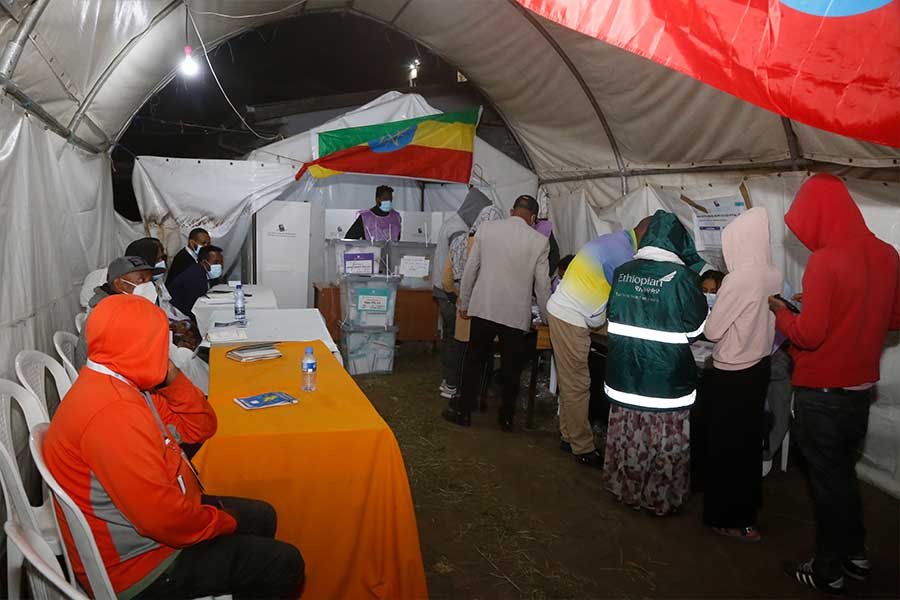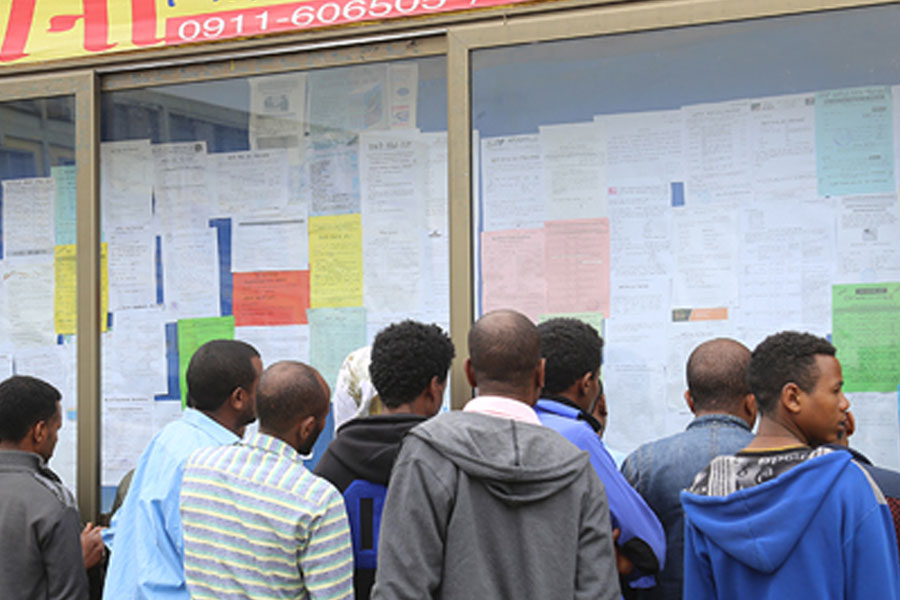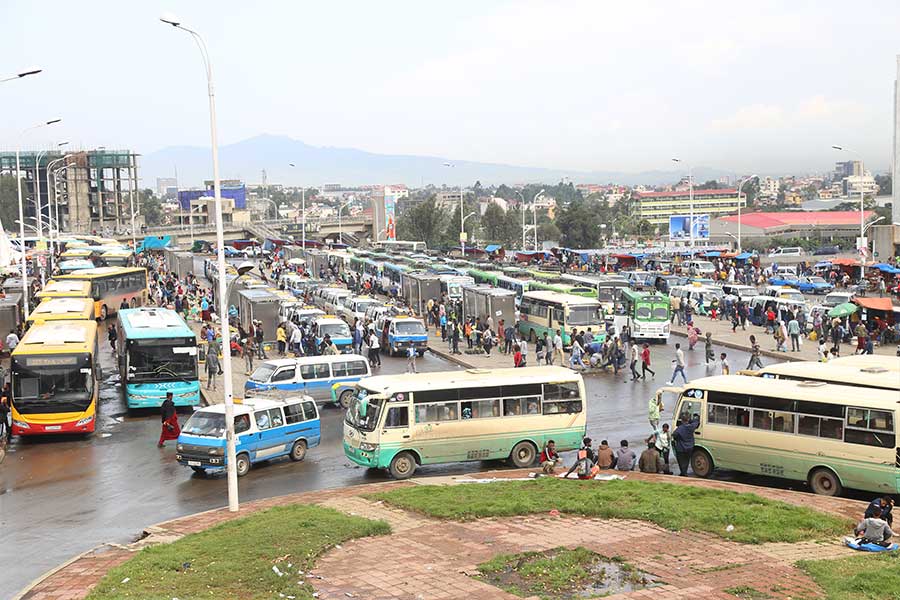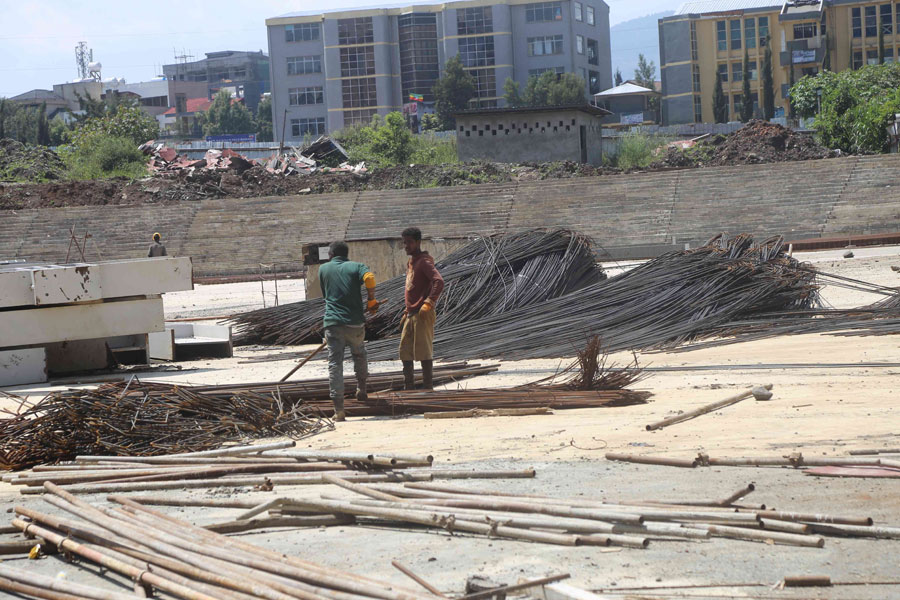
Agenda | Jul 29,2023
Mar 27 , 2021
By Christian Tesfaye
Few things speak louder of the poor state of a country than child labour. Technically, there are laws against this in Ethiopia. The labour law does not allow the employment of children under 14 for any purpose. If they are between that age and 18, there are limitations on the sorts of work they are allowed. The criminal code prohibits the trafficking of children for compulsory labour.
But often in Ethiopia, laws are taken as standards to live up to, not rules the violation of which are punishable by a court – hardly worth the paper they are written on sometimes. The same goes for child labour. It is rife and unimaginably ugly but a fact of life for anyone that bothers to take note.
The younger the child is, nonetheless, the harder it is to fail to notice. There was just one kid working on a minibus taxi as an assistant to the driver (redat) that was hard to fathom for me. He could barely shut the sliding doors and was barely visible above the car seats even when standing straight. He had dry plump cheeks and rough, cracked hands.
He was diligent and quick on his feet for his age. From his physical stature, he must have been around six. If he was older, he must be suffering from malnurished, making him one of the over 30 million people suffering from the same ailment in Ethiopia. He is also one of the 27pc of the youth population participating in the labour force. Many of these are robbed of their childhood and opportunities to learn. Worse still, they may not have guardians and could be one of 20,000 children trafficked into compulsory labour, according to Humanium, a children’s charity.
Given how harsh these conditions are, how vulnerable the children could be, and the long-term consequences on human capital, this is top of the agenda, right? Children growing up in debilitating poverty, selling their labour for sums well under the poverty threshold as an alternative to begging, is a priority for society, no?
Not at all. There are neither rallies against child labour nor would anyone storm the streets over it. No one goes to war over starving children. What society puts on a pedestal –worthy causes to kill, maim and massacre for –are nationalism, historical memory and offenses and slights against one group by another. Child labour does not even get a measly hashtag, except perhaps on the World Day Against Child Labour, and even then because it does not hurt to virtue signal. Few in nonprofit organisations and government agencies working on children’s issues take a lasting interest.
Ethiopia is not alone in this. Most of the Global South – where all the bad things seem to happen – has high levels of child labour. More than a quarter of all children in poor countries are engaged in labour activities. UNICEF counts from five-year-olds who start providing 21 hours of unpaid housework services a week.
The culprit is poverty. If not enough wealth is created, millions of children will fall through the cracks to depend, or be forced to rely, on their labour to close income gaps for themselves and their guardians. Lack of wealth also means a government unable to provide a social safety net for its citizens, not even children.
There is no magic bullet. If there was one, laws should have worked. Enforcing them more strictly could help to an extent but not when poverty is entrenched and there is great demand for such cheap labour.
PUBLISHED ON
Mar 27,2021 [ VOL
21 , NO
1091]


Agenda | Jul 29,2023

Agenda | Jun 26,2021

View From Arada | Apr 02,2022

Radar | Jun 05,2021

Radar | Jul 06,2019

Life Matters | Aug 08,2020

Fortune News | Dec 28,2019

Viewpoints | Sep 11,2020

Fortune News | Oct 24,2020

Fortune News | Oct 07,2023

My Opinion | 132038 Views | Aug 14,2021

My Opinion | 128435 Views | Aug 21,2021

My Opinion | 126362 Views | Sep 10,2021

My Opinion | 123981 Views | Aug 07,2021





Dec 22 , 2024 . By TIZITA SHEWAFERAW
Charged with transforming colossal state-owned enterprises into modern and competitiv...

Aug 18 , 2024 . By AKSAH ITALO
Although predictable Yonas Zerihun's job in the ride-hailing service is not immune to...

Jul 28 , 2024 . By TIZITA SHEWAFERAW
Unhabitual, perhaps too many, Samuel Gebreyohannes, 38, used to occasionally enjoy a couple of beers at breakfast. However, he recently swit...

Jul 13 , 2024 . By AKSAH ITALO
Investors who rely on tractors, trucks, and field vehicles for commuting, transporting commodities, and f...

Jul 12 , 2025
Political leaders and their policy advisors often promise great leaps forward, yet th...

Jul 5 , 2025
Six years ago, Ethiopia was the darling of international liberal commentators. A year...

Jun 28 , 2025
Meseret Damtie, the assertive auditor general, has never been shy about naming names...

Jun 21 , 2025
A well-worn adage says, “Budget is not destiny, but it is direction.” Examining t...

Jul 13 , 2025 . By YITBAREK GETACHEW
The Addis Abeba City Revenue Bureau has introduced a new directive set to reshape how...

Jul 13 , 2025 . By BEZAWIT HULUAGER
Addis Abeba has approved a record 350 billion Br budget for the 2025/26 fiscal year,...

Jul 13 , 2025 . By RUTH BERHANU
The Addis Abeba Revenue Bureau has scrapped a value-added tax (VAT) on unprocessed ve...

Jul 13 , 2025 . By NAHOM AYELE
Federal lawmakers have finally brought closure to a protracted and contentious tax de...